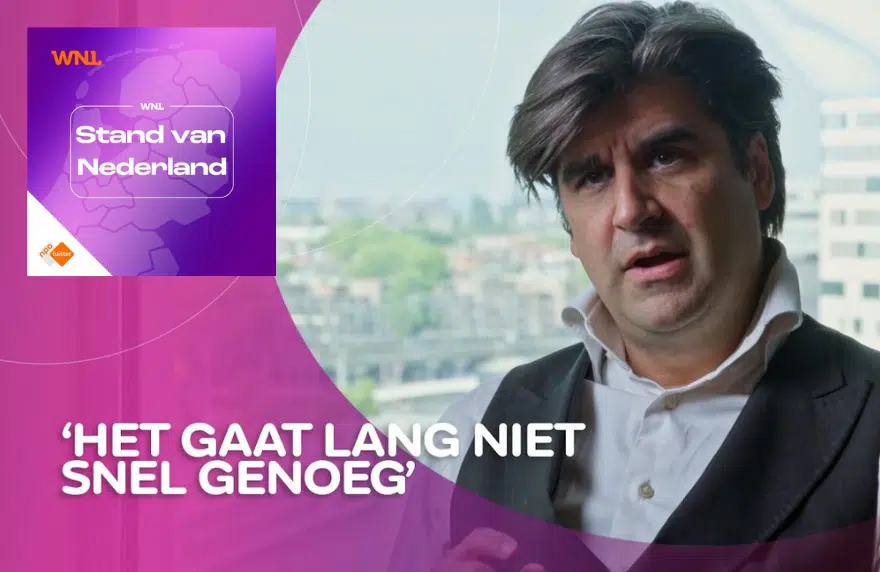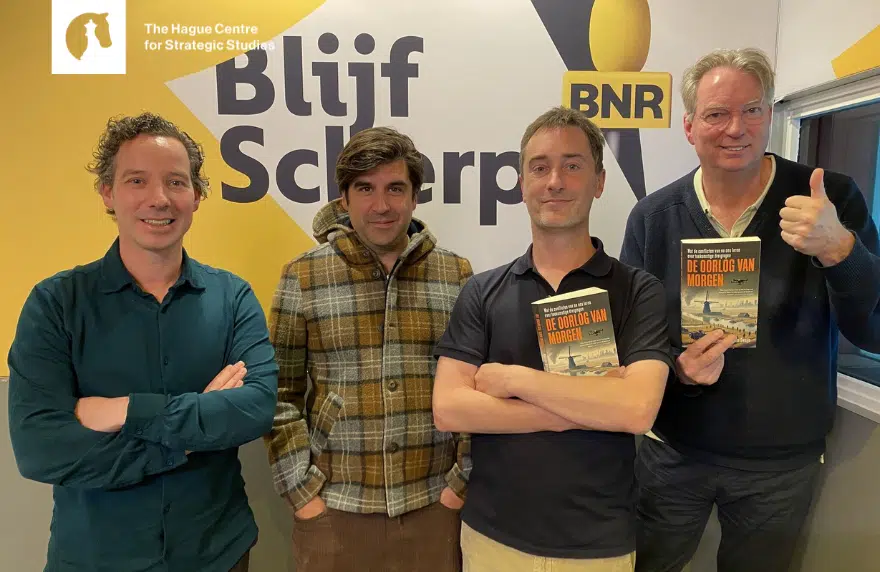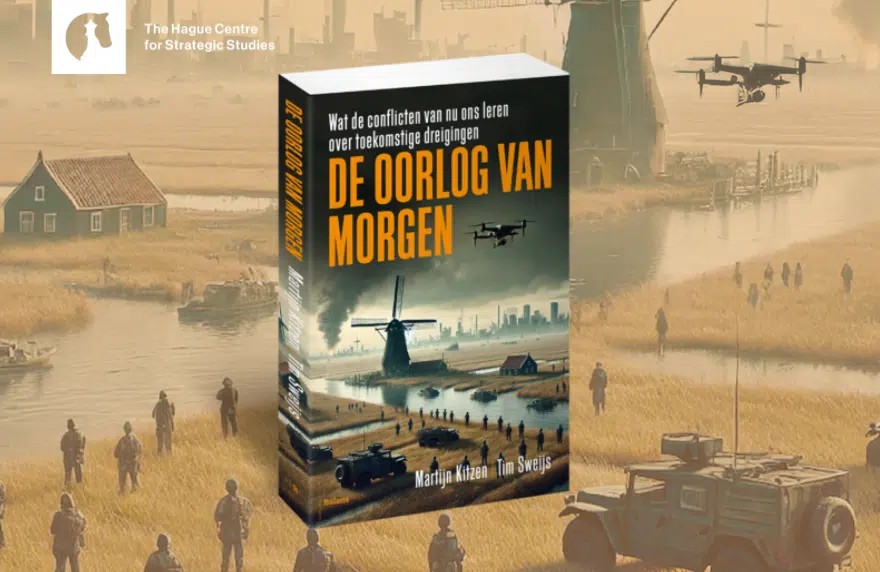Europa is niet klaar voor een oorlog met Rusland. Daarvoor waarschuwt HCSS defensie-expert Tim Sweijs, in Stand van Nederland: Wereld op Scherp op NPO 2.
De Europese economie mag dan veel groter zijn dan de Russische, Moskou heeft een sterke oorlogsindustrie opgebouwd. “Als je kijkt naar de Russische oorlogsindustrie, zie ik een industrie die in staat is nieuw materiaal te produceren. Zoveel zelfs dat ze het niet alleen naar Oekraïne sturen, maar ook naar de Baltische Staten”, begint Sweijs in gesprek met Jill Bleiksloot.
Dr. Sweijs is onderzoeksdirecteur bij het Den Haag Centrum voor Strategische Studies (HCSS) en bracht onlangs samen met hoogleraar Martijn Kitzen bij Uitgeverij Balans het boek “De Oorlog van morgen” uit.
“Ik zie ook dat ze hun rekruteringstargets halen”, vervolgt Sweijs. “Simpel gezegd: in een slechte maand verliezen de Russen tussen de 30.000 en 40.000 mannen. Dat is ongeveer de volledige Nederlandse krijgsmacht. Tot nu toe is Rusland in staat die verliezen te vervangen.”
Bovendien beschikt Rusland over een omvangrijk nucleair arsenaal. Sweijs waarschuwt het Westen om bedachtzaam met Rusland om te gaan. “Als we naar Europa kijken, zie ik een heel gefragmenteerd landschap met allerlei kleine industrietjes. De capaciteiten ontbreken”.
“In een slechte maand verliezen de Russen tussen de 30.000 en 40.000 mannen. Dat is ongeveer de volledige Nederlandse krijgsmacht.” Ook zijn Nederlandse brigades onderbemenst. “Daarbij zie ik ook – en dan kijk ik niet alleen naar de krijgsmachten, maar naar de bredere bevolking in Nederland en Europa – dat mensen om goede redenen niet bereid zijn om duizenden of tienduizenden doden te lijden in een oorlog.”
Na drie jaar oorlog op het Europese continent beginnen defensie-fabrieken langzaam te draaien. Toch gaat dat opschalen lang niet rap genoeg; het kan nog jaren duren voordat we op capaciteit zijn.
In Stand van Nederland vertelt Sweijs waar het misgaat. “Je kunt niet gelijk wapens produceren, want het opbouwen van een defensie-industrie kost tijd. Je moet fabrieken bouwen, mensen trainen, materialen verwerven en dan kun je pas iets gaan maken. Dat duurt jaren!”
Hoe komt dat? “Ik denk, hoe raar het ook klinkt, een gebrek aan urgentie. We zagen dat er oorlog was, we beseften dat we Oekraïne moesten helpen en dat we de defensie-industrie moesten aanzetten. Maar er werd eerder gedacht in kwesties van jaren in plaats van maanden, weken of dagen”, zegt Sweijs.
Hij herhaalt daarom zijn boodschap: “Ik denk dat wij erg voorzichtig moeten zijn als we nadenken over een conflict met Rusland en dat we heel snel onze capaciteit verder moeten opbouwen, juist om zo’n oorlog te voorkomen.”
***
Bekijk de hele uitzending van “Stand Van Nederland: Wereld Op Scherp” hier terug bij Omroep WNL.
***
Bron: Omroep WNL, 13 juni 2025 / 15 juni 2025







